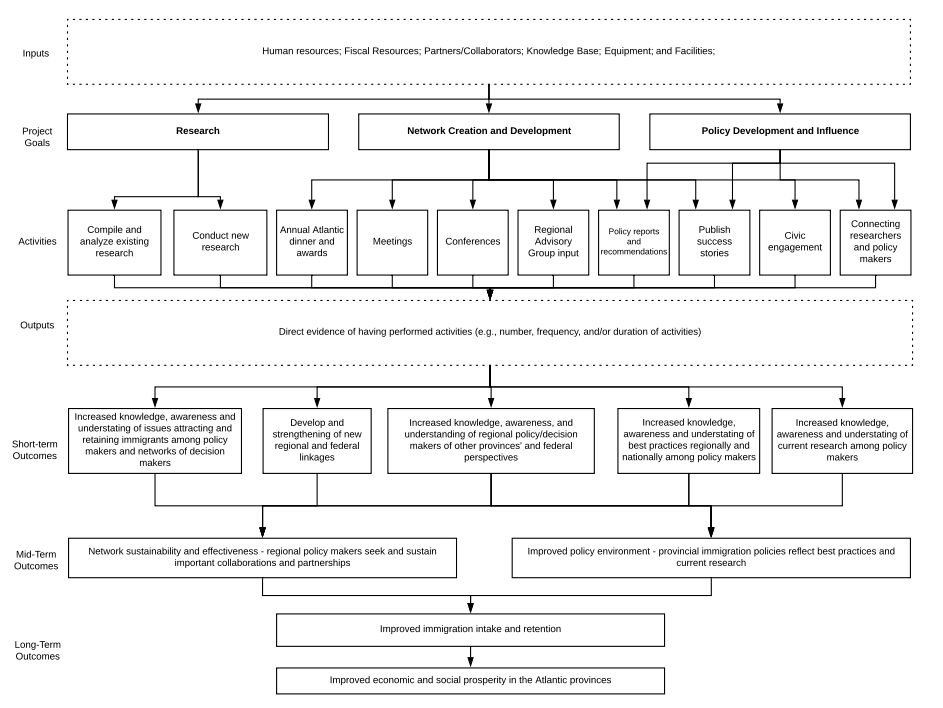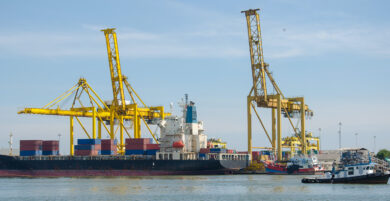Project Evaluation Executive Summary (January – March, 2018)
Project Description
The Atlantic Revitalization Project (ARP) is a three-year undertaking by the Public Policy Forum (PPF) to bolster the success of the Atlantic Growth Strategy. The overarching purpose is to help address the demographic issues of an aging — and in some places shrinking — population in Atlantic Canada. The aim of the ARP is to explore and provide a deep understanding as to why some people stay and some people leave, and to understand the push and pull factors that determine whether newcomers to the region choose Atlantic Canada as their permanent home.
Evaluation Description
Wisdom 2 Action (W2A) will be the third party evaluator for the duration of the project and will use developmental and impact approaches. The evaluation seeks to inform the development of the Atlantic Revitalization Project by helping determine its priorities and assess progress against objectives. It will assess PPF’s progress against annual and overall goals and objectives, and quantify what is working and what needs modification. It will also inform the innovation of the project by helping determine priorities and adjust the course of the project as needed.
Interviews with key informants will inform project adjustments and bring new topic areas into PPF’s work, ensuring research and engagement responds to the interests of stakeholders. The developmental evaluation in the first year assessed early progress and focused on co-developing research, evaluation and policy questions for years two and three. In year two, the evaluation will focus on assessing increased knowledge and awareness of best practices related to immigrant retention, and measure the development and outcomes of new collaborative relationships. In year three, the evaluation will continue to assess reported increased knowledge and awareness, and also start to review project outcomes with stakeholders, including assessing the influence of the project on decision making and policy change within Atlantic Canada.
The W2A evaluation team worked with PPF staff to identify and create a project logic model (see page 3) that articulates the project’s underlying theory of change, with associated indicators to be measured throughout the duration of the project. As a developmental evaluation, program theory and key indicators are subject to change as information is fed back to the program and changes are made. The evaluation uses mixed-methods analyses and incorporates key informant interviews with data from online questionnaires to audit program processes, assess fidelity and set a baseline for the outcome related evaluation questions.
Evaluation Questions
Is PPF’s Atlantic Revitalization Project doing what it needs to be doing in the following three areas?
- Research and advancing knowledge
- Network creation and development
- Policy development and influence
Evaluation Findings and Interpretation
The Atlantic Summit conference was advertised regionally and nationally, and sold 225 tickets with 93 more sold for the follow-up dinner and award ceremony. The majority of interviewees said the information at the conference and in the reports was presented well, that they will reference the findings in their own work and that the second report, which used storytelling to highlight challenges and opportunities for newcomers, was insightful. Interviewees requested more stories from immigrants, a focus on regional context when presenting data and continued dissemination of the information in the reports through local media sources.
PPF’s Atlantic Summit conference and reports were viewed positively as a commitment to working with stakeholders across the Atlantic region. Although it is still too early to gauge the impacts of network creation, some interviewees said the conference experience allowed them to meet and converse with new people on the topic of immigration. A shared request was for more members of the private sector to be included in future conferences, and for more practical advice to be provided to organizations, employers and the layperson regarding what they can do to welcome and retain newcomers to the region. Interviewees also commented positively on PPF’s unique position as an outsider to help continue strengthening networking efforts in the Atlantic region and nationally. Suggestions were made for collaboration with local policy and research organizations, and to continue highlighting projects that local immigration organizations are working on.
Evaluation questions on policy development and influence will be addressed in future evaluation reports.






